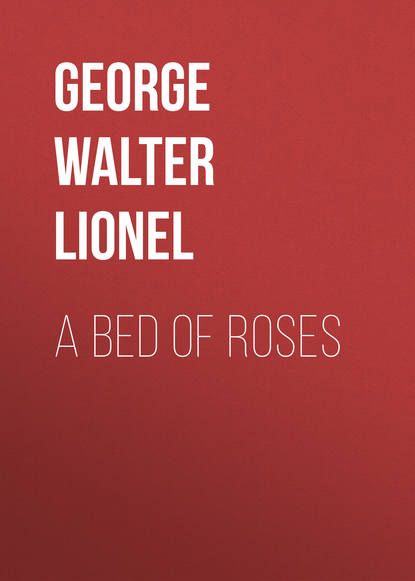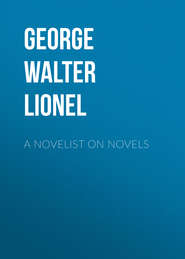По всем вопросам обращайтесь на: info@litportal.ru
(©) 2003-2024.
✖
A Bed of Roses
Настройки чтения
Размер шрифта
Высота строк
Поля
'No doubt, no doubt,' replied the Secretary, her eyes growing just a little darker behind the glasses. 'Yet, you see, we are compelled by the nature of our business to make enquiries. A good reference is a very good thing, yet people are a little careless sometimes; the hearts of employers are often rather soft.'
This was a little too much for Victoria. 'If you want to know the truth,' she said bluntly, 'the son of the house persecuted me with his attentions, and I couldn't bear it.'
The Secretary made a shorthand note. Then she looked at Victoria's flashing eyes, heightened colour, thick piled hair.
'I am very sorry,' she began lamely..
What dreadful things women are, thought Victoria, folding up the Telegraph. If Christ had said: Let her who hath never sinned.. the woman would have been stoned. Victoria got up, went to the looking-glass and inspected herself. Yes, she was very pretty. She was prettier than she had ever been before. Her skin was paler, her eyes larger; her thick eyebrows almost met in an exquisite gradation of short dark hairs over the bridge of the nose. She watched her breast rise and fall gently, flashing white through the black lacework of her blouse, then falling away from it, tantalising the faint sunshine that would kiss it. As she turned, another looking-glass set in the lower panels of a small cupboard told her that her feet were small and high arched. Her openwork stockings were drawn so tight that the skin there also gleamed white.
Victoria took from the table a dirty visiting card. It bore the words 'Louis Carrel, Musical and Theatrical Agent, 5 Soho Place.' She had come by it in singular manner. Two days before, as she left the offices of the 'Compleat Governess Agency' after having realised that she could not qualify in either French, German, Music, Poker work or Swedish drill, she had paused for a moment on the doorstep, surveying the dingy court where they were concealed, the dirty panes of an unlet shop opposite, the strange literature flaunting in the showcase of some publisher of esoterics. A woman had come up to her, rising like the loafers from the flagstones. She had realised her as between ages and between colours. Then the woman had disappeared as suddenly as she came without having spoken, leaving in Victoria's hand the little square of pasteboard.
Victoria looked at it meditatively. She would have shrunk from the idea of the stage a year before, when the tradition of Lympton was still upon her. But times had changed; a simple philosophy was growing in her; what did anything matter? would it not be all the same in a hundred years? The discovery of this philosophy did not strike her as commonplace. There are but few who know that this is the philosophy of the world.
Victoria put down the card and began to dress. She removed the old black skirt and ragged lace blouse and, as she stood before the glass in her short petticoat, patting her hair and setting a comb, she reflected with satisfaction that her arms were shapely and white. She looked almost lovingly at the long thin dark hairs, fine as silk, that streaked her forearms; she kissed them gently, moved to self-adoration by the sweet scent of femininity that rose from her.
She tore herself away from her self-worship and quickly began to dress. She put on a light skirt in serge, striped black and white, threading her head through it with great care for fear she should damage her fringe net. She drew on a white blouse, simple enough though cheap. As it fastened along the side she did not have to call in Miss Briggs; which was fortunate, as this was the time when Miss Briggs carried coals. Victoria wriggled for a moment to settle the uncomfortable boning of the neck and, having buckled and belted the skirt over the blouse, completed her toilet with her little black and white jacket to match the skirt. A tiny black silk cravat from her neck was discarded, as she found that the fashionable ruffle, emerging from the closed coat, produced an effet mousquetaire. Lastly she put on her hat; a lapse from the fashions perhaps, but a lovable, flat, almost crownless, dead black, save a vertical group of feathers.
Victoria drew her veil down, regretting the thickness of the spots, pushed it up to repair with a dab of powder the ravage of a pod on the tip of her nose. She took up her parasol and white gloves, a glow of excitement already creeping over her as she realised how cleverly she must have caught the spirit of the profession to look the actress to the life and yet remain in the note of the demure widow.
Soho Place is neither one of the 'good' streets nor one of the 'bad.' The police do not pace it in twos and threes in broad daylight, yet they hardly like to venture into it singly by night. On one side it ends in a square; on the other it turns off into an unobtrusive side street, the reputation of which varies yard by yard according to the distance from the main roads. It is dirty, dingy; yet not without dignity, for its good Georgian and Victorian houses preserve some solidity and are not yet of the tenement class. They are still in the grade of office and shop which is immediately below their one-time status of dwellings for well-to-do merchants.
Victoria entered Soho Place from the square, so that she was not too ill impressed. She walked in the middle of the pavement, unconsciously influenced the foreign flavour of Soho. There men and women stand all day in the street, talking, bargaining, quarrelling and making love; when a cab rattles by they move aside lazily, as a Neapolitan stevedore rolls away on the wharf from the wheels of a passing cart.
Victoria paused for a second on the steps. № 5 Soho Place was a good house enough. The ground floor was occupied by a firm of auctioneers; a gentleman describing himself as A.R.I.B.A. exercised his profession on the third floor; below his plate was nailed a visiting-card similar to the one Victoria took from her reticule. She went up the staircase feeling a little braced by the respectability of the house, though she had caught sight through the area railings of an unspeakably dirty kitchen where unwashed pots flaunted greasy remains on a liquor stained deal table. The staircase itself, with its neutral and stained green distemper, was not over encouraging. Victoria stopped at the first landing. She had no need to enquire as to the whereabouts of the impresario for, on a door which stood ajar, was nailed another dirty card. Just as she was about to push it, it opened further to allow a girl to come out. She was very fair; her cheeks were a little flushed; a golden lock or two fell like keepsake ringlets on her low lace collar. Victoria just had time to see that the blue eyes sparkled and to receive a cheerful smile. The girl muttered an apology and, smiling still, brushed past her and lightly ran down the stairs. 'A successful candidate,' thought Victoria, her heart rising once more.
She entered the room and found it empty. It was almost entirely bare of furniture, for little save an island of chairs in the middle and faded red cloth curtains relieved the uniform dirtiness of the wall paper which once was flowered. One wall was entirely covered by a large poster where half a dozen impossibly charming girls of the biscuit box type were executing a cancan so symmetrically as to recall an Egyptian frieze. The mantlepiece was bare save for the signed photograph of some magnificent foreign-looking athlete, nude to the waist. Victoria waited for a moment, watching a door which led into an inner room, then went towards it. At once the sound of a chair being pushed back and the fall of some small article on the floor told her that the occupant had heard her footsteps. The door opened suddenly.
Victoria looked at the apparition with some surprise. In a single glance she took in the details of his face and clothes, all of which were pleasing. The man was obviously a foreigner. His face was pale, clean shaven save for a small black moustache closely cropped at the ends; his eyes were brown; his eyebrows, as beautifully pencilled as those of a girl, emphasized the whiteness of his high forehead from which the hair receded in thick waves. His lips, red and full, were parted over his white teeth in a pleasant smile. Victoria saw too that he was dressed in perfect taste, in soft grey tweed, fitting well over the collar and loose everywhere else; his linen was immaculate; in fact nothing about him would have disgraced the Chandraga mess, except perhaps a gold ring with a large diamond which he wore on the little finger of his right hand.
'Mr Carrel?' said Victoria in some trepidation.
'Yes, Mademoiselle,' said the man pleasantly. 'Will you have the kindness to enter?' He held the door open and Victoria, hesitating a little, preceded him.
The inner room was almost a replica of the outer. It too was scantily furnished. On a large table heaps of dusty papers were stacked. An ash-tray overflowed over one end. In a corner stood a rickety-looking piano. The walls were profusely decorated with posters and photographs, presumably of actors and actresses, some highly renowned. Victoria felt respect creeping into her soul.
Carrel placed a chair for her before the table and resumed his own. For the space of a second or two he looked Victoria over. She was a little too conscious of his scrutiny to be quite at ease, but she was not afraid of the verdict.
'So, Mademoiselle,' said the man gently, 'you wish for an engagement on the stage?'
Victoria had not expected such directness. 'Yes, I do,' she said. 'That is, I was thinking of it since I got your card.'
'My card?' said Carrel, raising his eyebrows a little. 'How did you get my card?'
Victoria told him briefly how the card had been thrust into her hand, how curious it was and how surprised she had been as she did not know the woman and had never seen her again. Then she frankly confessed that she had no experience of the stage but wanted to earn her living and that.. She stopped aghast at the tactical error. But Carrel was looking at her fixedly, a smile playing on his lips as he pulled his tiny moustache with his jewelled hand.
'Yes, certainly, I understand,' he said. 'Experience is very useful, naturally. But you must begin and you know: il n'y a que le premier pas qui coûte. Now perhaps you can sing? It would be very useful.'
'Yes, I can sing,' said Victoria doubtfully, suppressing 'a little,' remembering her first mistake.
'Ah, that is good,' said Carrel smiling. 'Will you sit down to the piano? I have no music; ladies always bring it but do you not know something by heart?'
Victoria got up, her heart beating a little and went to the piano. 'I don't know anything French,' she said.
'It does not matter,' said Carrel, 'you will learn easily.' He lowered the piano stool for her. As she sat down the side of his head brushed her shoulder lightly. A faint scent of heliotrope rose from his hair.
Victoria dragged off her gloves nervously, felt for the pedals and with a voice that trembled a little sang two ballads which had always pleased Lympton. The piano was frightfully out of tune. Everything conspired to make her nervous. It was only when she struck the last note that she looked at the impresario.
'Very good, very good,' cried Carrel. 'Magnifique. Mademoiselle, you have a beautiful voice. You will be a great success at Vichy.'
'Vichy?' echoed Victoria, a little overwhelmed by his approval of a voice which she knew to be quite ordinary.
'Yes, I have a troupe to sing and dance at Vichy and in the towns, Clermont Ferrand, Lyon, everywhere. I will engage you to sing and dance,' said Carrel, his dark eyes sparkling.
'Oh, I can't dance,' cried Victoria despairingly.
'But I assure you, it is not difficult,' said Carrel. 'We will teach you. There, I will show you the contract. As you have not had much experience my syndicate can only pay you one hundred and fifty francs a month. But we will pay the expenses and the costumes.'
Victoria looked doubtful for a moment. To sing, to dance, to go to France where she had never been, all this was sudden and momentous.
'Voyons,' said Carrel, 'it will be quite easy. I am taking four English ladies with you and two do not understand the theatre. You will make more money if the audience like you. Here is the contract.' He drew a printed sheet out of the drawer and handed it to her.
It was an impressive document with a heavy headline; Troupe de Théâtre Anglaise. It bore a French revenue stamp and contained half-a-dozen clauses in French which she struggled through painfully; she could only guess at their meaning. So far as she could see she was bound to sing and dance according to the programme which was to be fixed by the Directeur, twice every day including Sundays. The syndicat undertook to pay the railway fares and to provide costumes. She hesitated, then crossed the Rubicon.
'Fill in the blanks, please,' she said unsteadily. 'I accept.'
Carrel took up a pen and wrote in the date and cent cinquante francs. 'What name will you adopt?' he asked, 'and what is your own name?'
Victoria hesitated. 'My name is Victoria Fulton,' she said. 'You may call me.. Aminta Ormond.'
Carrel smiled once more. 'Aminta Ormond? I do not think you will like that. It is not English. It is like Amanda. No! I have it, Gladys Oxford, it is excellent.'
Before she could protest he had begun writing. After all, what did it matter? She signed the document without a word.
'Voilà,' said Carrel smoothly, locking the drawer on the contract. 'We leave from Charing Cross on Wednesday evening. So you have two days to prepare yourself. Monsieur le Directeur will meet you under the clock at a quarter past eight. The train leaves at nine. We will take your ticket when you arrive. Please come here at four on Wednesday and I will introduce you to the Directeur.'
Victoria got up and mechanically shook hands. Carrel opened the door for her and ceremoniously bowed her out. She walked into Soho place as in a dream, every pulse in her body thrilling with unwonted adventure. She stared at a dirty window pane and wondered at the brilliance it threw back from her eyes.
CHAPTER XII
Victoria had forgotten her latchkey. Miss Briggs opened the door for her. Her sallow face brightened up.
'There's a gentleman waiting, mum,' she said, 'and 'ere's a telegram.' Came jest five minutes after you left. I've put him in the front room what's empty, mum. Thought you'd rather see him there. Been 'ere 'arf an 'our, mum.'
Victoria did not attempt to disentangle the hours of arrival of the gentleman and the telegram; she tore open the brown envelope excitedly. It only heralded the coming of Edward who was doubtless the gentleman.
'Thanks, Miss Briggs,' she said, 'it's my brother.'
'Yes, mum, nice young gentleman. He's all right; been reading the New Age, mum, this 'arf hour, what belongs to the lady on the third.'







